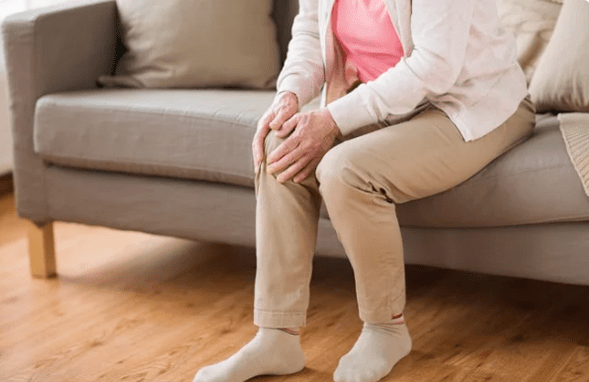
Arthrosis - a disease that has developed over the course of many years with a predominant damage to certain joints.Most often, painful changes affect large joints - knee, hip, shoulder, etc. Pain and difficulty in moving in them complicate a person’s life in a physical and emotional plan, and taking into account the fact that arthrosis is often found at a young age, it can intervene in achieving professional and personal goals.That is why it is important to diagnose the disease as soon as possible and begin the complex treatment of arthrosis.
Treatment of arthrosis
At the initial stage of arthrosis, conservative methods are used that do not involve surgery.Meanwhile, the method methods used allow to suspend the development of the disease, maintain motor activity, reduce the severity of the main symptoms of arthrosis and generally improve human quality.
- Drug treatment
Used groups of drugs
- NSAIDs;
- GKS;
- Chondroprotectors.
- PRP therapy
- Medical physical education
- Massage and manual therapy
- Extension therapy (traction)
- Physiotherapy
Physiotherapy methods widely used for arthrosis:
- Magnetotherapy;
- UHF;
- Inductothermia;
- Ultrasound therapy;
- Balneotherapy;
- Surgical treatment.
Treatment of arthrosis with drugs
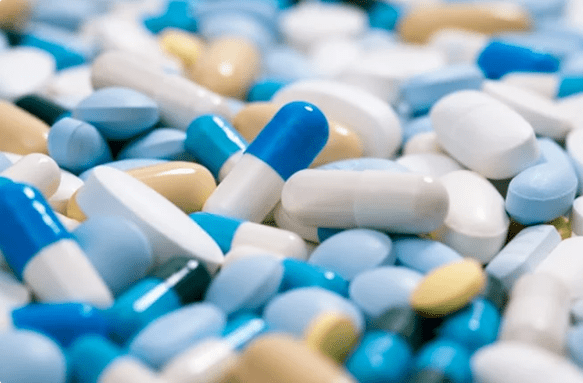
Among patients, it is common that the use of drugs with an analgesic effect (orally in the form of tablets or injectively - intramuscularly) is the most important method of removing pain in arthrosis.In fact, the use of drugs is a method of rapid relief of pain, which should be prescribed only in the acute period.The fact is that the drugs widely prescribed for these goals have serious side effects that intensify with prolonged and especially with uncontrolled intake.We are talking about undesirable effects from the digestive, cardiovascular, nervous systems, which with a high probability can bring the patient to a hospital bed (gastric bleeding, heart rhythm disturbances, effects on the liver and kidney, etc.).
Non -steroidal anti -inflammatory drugs
Used groups of drugs:
NSAID - Non -steroidal anti -inflammatory drugs, many of them are released without a prescription and are widely accepted by patients on their own.This group includes drugs of various chemical structures, the most famous of them are Diclofenac, Indomethacin, Nenproxen (classic NSAIDs), more modern to meloxicam, nimesulide, ketorolac.The listed drugs have a pronounced anti -inflammatory and analgesic effect, reduce pain in the joint and adjacent muscle tissue, but do not affect the development of the disease.They are used only to reduce symptoms at all stages of the disease.Effective with concomitant synovitis (accumulation of fluid in the joint).
GKS - glucocorticosteroid drugs (hydrocortisone, triamcinone, betamethasone) have the strongest anti -inflammatory and analgesic effects.It is advisable and effective for their percentage introduction.However, patients often negatively relate to the use of these drugs in treatment, which is associated with possible side effects: these are infectious complications, deterioration of the condition of the ligaments, articular surface, and degeneration of cartilage.But with the peri -human risk of these complications, the risk of these complications is minimal.
Chondroprotectors - Glucosamine and chondroitin are natural components of cartilage, which, when administered orally, contribute to the gradual restoration of cartilage, normalize its density and elasticity.These active components are usually used in the complex, are part of various drugs and auxiliary products.Chondroprotectors do not have a rapid analgesic effect, improvement develops with prolonged use of drugs based on them, which is associated with partial restoration of cartilage.Recommended at all stages of the disease.
PRP therapy
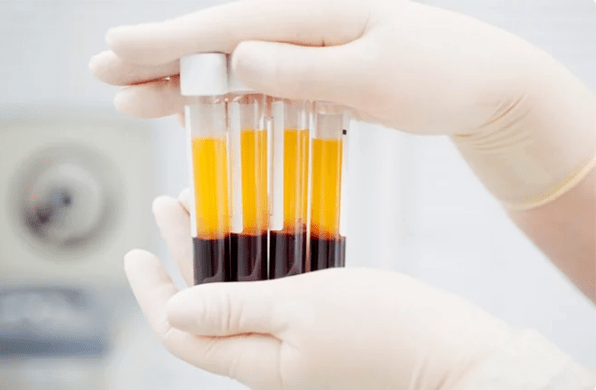
One of the most modern methods of recovery medicine, which is used for sports injuries and mono-dystrophic diseases of the joints, is PRP therapy (PRP-Platelet-Rich Plasma) or plase mobravitization, autoplasmic therapy.
The essence of the procedure It consists in the introduction of plasma enriched by platelets, directly at the place of damage, in this case into the joint.The drug for administration is obtained from the patient’s own blood, so the method is considered not only highly effective, but also safe for humans.Growth factors and other biologically active substances (serotonin, bradykinin, prostaglandins, etc.) contained in plasma thrombocus enriched by thrombocytes, contribute to the activation of the processes of regeneration and synthesis of their own basic substances.
The resulting plasma, enriched with platelets, is introduced both percentively and directly into the affected joint, due to which a partial restoration of tissues is achieved - primarily cartilage.
The methodology at 1-2 stages of osteoarthrosis is most applicable.It shows good results and allows you to delay the rapid development of the disease due to the release of growth factors by platelets.The method is relatively new, but has proved its high efficiency.PRP therapy was first used in surgery, today the technique is successfully used in many areas of medicine, including in rheumatology and orthopedics, neurology and cosmetology.Conducting autoplasmic therapy allows you to increase the functioning of the joint without any other aggressive interventions.
Synovial fluid treads - a group of drugs based on hyaluronic acid, which are introduced directly into the joint cavity (injection) and play the role of a knitting lubricant fluid in the case when the natural synovial fluid is almost completely absent (it provides the role of the lubrication of articular surfaces).They are used in the late stages of arthrosis.
Medical remedies of this group are also called “synovial fluid prostheses”, “biological substitutes for synovial fluid”.The effect after the administration of drugs is long - from 6 to 13 months, depending on the medical product used.
Some are used Other groups of drugs - antispasmodics, muscle relaxants, vitamins of group B in therapeutic (high) dosages, but all of them have only auxiliary value in the treatment of arthrosis.
Medical physical education
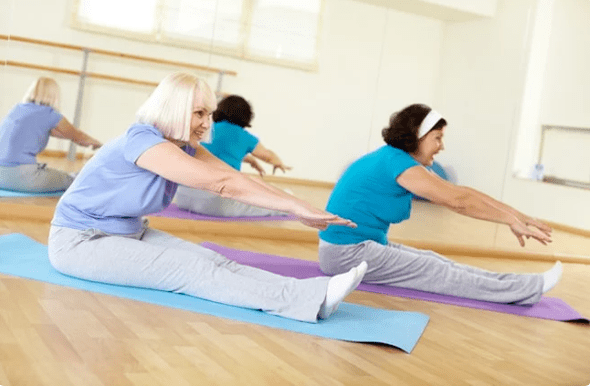
Special exercises of therapeutic gymnastics can and should be used even during the exacerbation, at all stages of arthrosis.Such measures can reduce pain and prevent pronounced restrictions in the movement of the joints.However, among patients with arthrosis, the method is unpopular, since most of them are mistaken, believing that with pain it is necessary to limit any movements.The timely beginning of physical exercises, on the contrary, contributes to a faster recovery and decrease in symptoms, primarily pain.
Particularly effective physiotherapy exercises in water, joint movements in the unloading position (lying, sitting, in a hanging position), moderate walking on a flat surface.If necessary, for example, with a pronounced pain syndrome, a special bandage can be imposed on the joint, but you need to start physical education as early as possible.
Massage and manual therapy
Methods of mechanical effects on the joint, muscles and ligamentous apparatus allow reducing the severity of pain, increase mobility, improve blood circulation and metabolism in the area of affected joints, relieve muscle spasm, normalize muscle function.
Extension therapy (traction)
In a hospital or a medical sanatorium, traction therapy is possible - this is a joint traffic (hip, knee) according to a special method using various cargoes.The standard traction scheme is designed for 28 days, with a gradual increase in the load and exposure time.Classic techniques are used and more modern using simulators.Their effectiveness is almost the same, but the simulators are more comfortable for the patient.
Physiotherapy
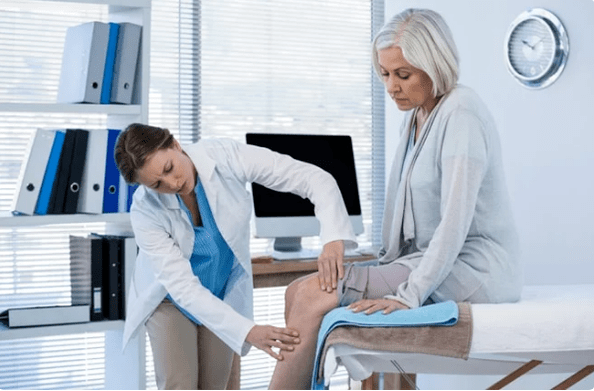
The use of various physiotherapy techniques in the initial stages of arthrosis allows us to achieve significant relief of the pain syndrome and increase mobility in the affected joints.Physiotherapy courses contribute to a slowdown in the pathological process and lengthening the period without exacerbations.
Widely used for arthrosis of the methodology of physiotherapy
Magnetotherapy - local effects by constant or alternating low -frequency magnetic field.In the area of the affected joint, metabolic processes are accelerated, blood circulation and delivery of nutrients to the joint structures increase, the processes of regeneration and synthesis of the own substances necessary for the joint work are activated.Magnetotherapy has an anti -altitude, analgesic, anti -inflammatory effects from almost the first session, which positively affects the general condition of the patient.Magnetotherapy is successfully used in hospitals and sanatoriums, where medical equipment of various modifications is used.A huge advantage for patients with arthrosis is the possibility of independent courses of magnetotherapy at home, by purpose and under the control of the attending physician.Timely use of portable devices for magnetotherapy allows you to stop developing pains, the beginning of exacerbation or conduct a preventive course - that is, to maintain normal well -being.A positive moment of magnetotherapy can also be called the beneficial effect of procedures on the state of the cardiovascular and nervous systems.Given the fact that most patients with arthrosis are people of medium and advanced age, with an existing set of chronic diseases (arterial hypertension, coronary heart disease, atherosclerosis, etc.), a mild sedative and stabilizing effect of magnetotherapy will be very useful.
Ultrasound therapy It is used more often in combination with the effects of drugs with anti -inflammatory, analgesic, restoration effect (hydrocortisone, chondroitin sulfate, indomethacin, etc.) - ultrafonophoresis or phonophoresis.Ultrasound increases the permeability of tissues for drugs, so their main action is enhanced.Even without a medicinal component, the method is highly effective for arthrosis: ultrasound has a mechanical effect on tissues (micromassage), activates local immune and restoration processes in the joint and adjacent muscles, an analgesic and anti -inflammatory effect is expressed.
Laser therapy - One of the most common and widely used procedures.The therapeutic effect is based on the reflex expansion of blood vessels above the focus of the pathological process.This leads to an improvement in local blood flow, the activation of metabolism, the removal of underestimated metabolism, and a decrease in the intensity of pain.Laser therapy due to the low depth of penetration has a minimally pronounced systemic effect, while enhancing the therapeutic effect of other procedures.
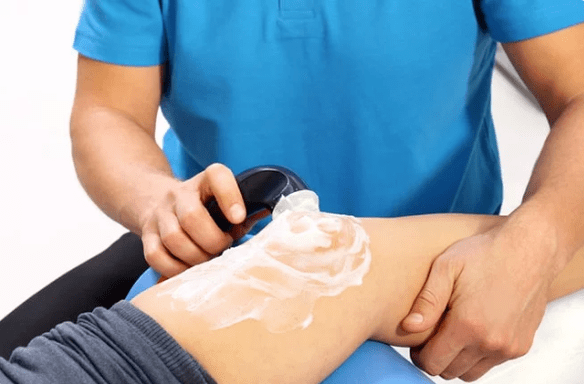
Shock wave therapy - The high -energy method of exposure.It is based on a piezoelectric effect.The influence of the piezoelectric discharge on the pathological focus is achieved by a number of effects.Non -viable cells are destroyed, which leads to activation of local immunity.The gybernic (inactive) cells are stimulated, which contributes to regeneration processes.At the same time, the intensity of the pain syndrome is significantly reduced (although the procedure itself is painful).The undoubted advantage of the method is the use of the method once every 4-7 days.
Diadinamotherapy - The method of therapeutic effect on the body with diadynamic impulse currents.The diadynamic currents used in this method rhythmically excite skin receptors, which indirectly leads to the activation of the descending physiological mechanisms of pain suppressed and leads to a decrease in the patient’s pain, up to complete analgesia.Therefore, such procedures are effective for severe pain.
Electromiostimulation - exposure to electric current on muscle tissue.With arthrosis of large joints, the work of the surrounding muscles is disturbed, this leads to atrophy of some and the overload of others.Disorders of gait are developing.When exposed to alternating electric current according to a special program, the muscles rhythmically decline, performing a certain work, which leads to the restoration of their volume and function.
Cryotherapy - A simple and effective method of treatment, unfortunately, is rarely used.The local effect of low temperature reduces the sensitivity of pain receptors and the synthesis of biologically active substances that stimulate the development of inflammation.After cryotherapy, a reflex expansion of blood vessels occurs, local blood flow is accelerated, and recovery processes are activated.This method is especially effective in combination with shock wave therapy.
Balneotherapy
In the sanatorium and resort conditions, hydrogenation is carried out-medical baths, among which radonary arthrosis are especially effective for arthrosis.A general effect on the body is carried out by the products of radioactive decay of radon dissolved in water.The most important effect is the activation of metabolic processes.
A similar, although less pronounced effect is characteristic of therapeutic mud (peloids), hydrogen sulfide and carbon dioxide.
Surgical treatment
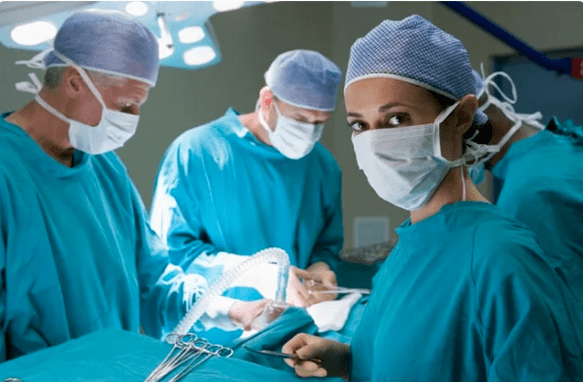
Surgical methods are resorted to in the late stages of arthrosis, when the joint mobility is sharply limited or absent, which affects the quality of the patient's life.All over the world, various methods of joint endoprosthetics are used, which allow you to completely restore the volume of movements and return the patient to active life at any age.
The tactics and volume of surgical intervention is determined by the attending physician, the choice is based on parameters such as the general condition of the patient, age and the presence of concomitant diseases, overweight and others.The best results after endoprosthetics were obtained in patients of young and middle -aged (almost complete restoration of the volume of movements), but the elderly also has a significant improvement in the condition, since after the successfully performed operation and recovery they can fully provide themselves in the domestic plan and move not only within the apartment, but also to go out, not to limit themselves in communication.
Prevention
Arthrosis belong to the group of diseases of straightforwardness and develop mainly as a result of age -related changes in the joints, enhanced by the influence of external negative factors.Attention to the state of the musculoskeletal system, the prevention of joint diseases and the treatment of arthrosis in the early stages make it possible to maintain motor activity and avoid massive medical intervention in the future.

























